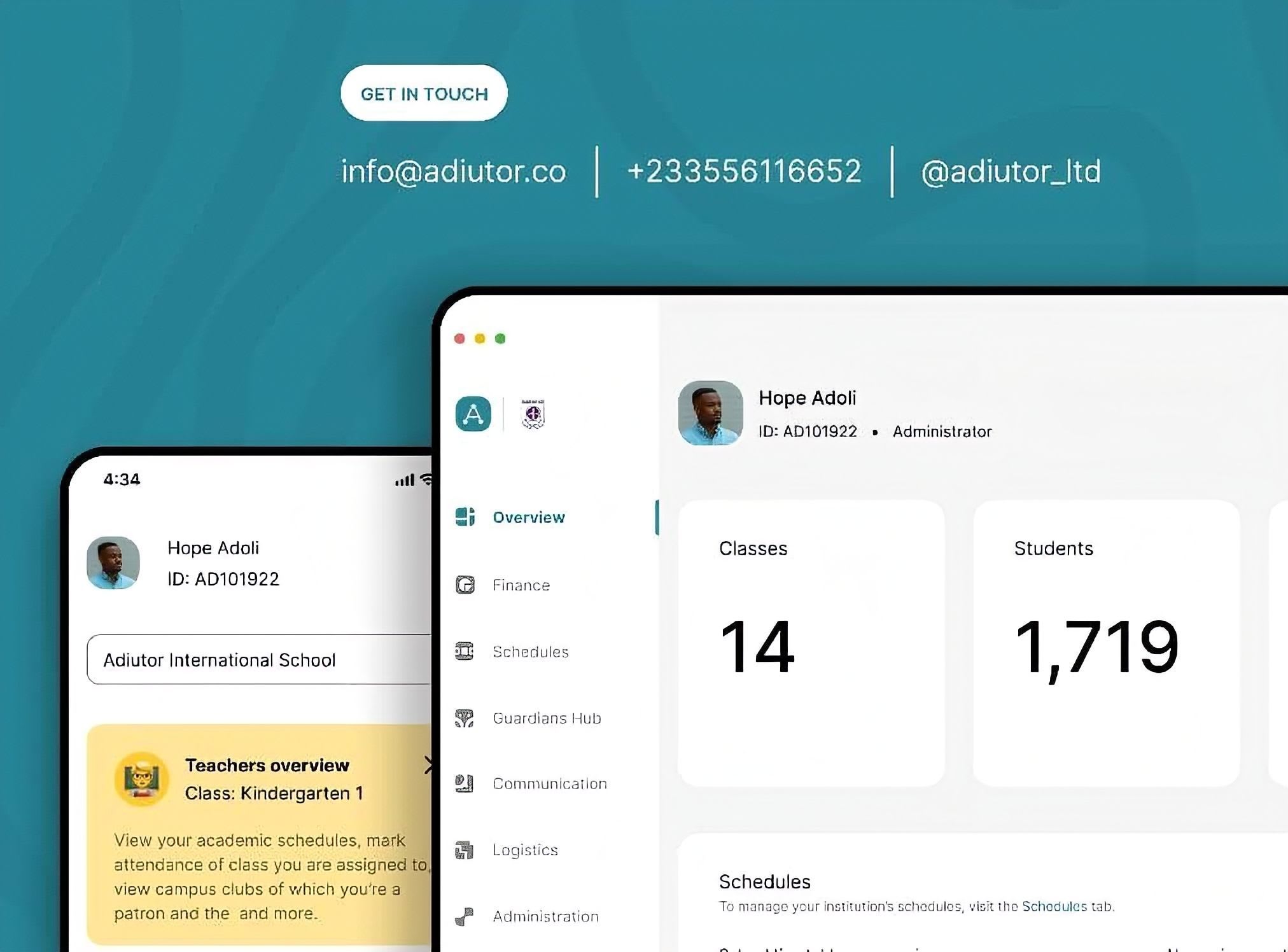Teacher and Guardian Expectations in Shaping Student Outcomes
Expectations are a major part of the learning and educational process for students.

Expectations are a major part of the learning and educational process for students. Expectations are what set a student into academic, behavioral, and holistic development. In most cases, expectations that are put in place both by a teacher and a guardian become standards that the student is bound to live up to, wittingly or otherwise. Studies reveal that the expectations of teachers and guardians will very much determine the outcomes of the students.
💡 Lessons learnt: Nobody rises to low expectations.
If a teacher has high expectations regarding his or her students, the student will tend to accomplish more. This psychological phenomenon originally observed in the classroom, known as the "Pygmalion effect," suggests that high expectations lead to improved performance and low expectations lead to worsened performance. Thus students often rise to the level of the expectations placed upon them. A study by Riley et al reported students did better in their academic work simply because their teachers believed they could do so. (Riley & Ungerleider, 2019).
Expectations from guardians reveal an almost similar deep relationship with the outcomes of students. A child whose parent believes that they can perform well in school develops a positive perception of learning. They thus put much effort into their studies, which highly increases the chances of success in education. Parental involvement and encouragement have indicated positive improvements not only in study performance but also in social skills and emotional well-being.
Teacher Expectations and Student Performance
One of the determinants of student performance is the teacher's expectations. How a teacher thinks about their students, considering their potential to do things, affects the learning environment, approaches used in teaching, and finally, the performance outcomes.
Positive teacher expectations set a ripple effect on student performance. Students are more likely to get supportive, challenging assignments and constructive feedback if their teacher has high expectations of them. This creates a positive loop where students strive for better outcomes. It has been established that students perform better academically if they are positively perceived by their teachers. One study showed that students identified as "high-achieving" based on their teachers' expectations tended to perform better over time—progressively (Rubie-Davies, 2010).
If the expectations are too low, for instance, the student might become disheartened to the extent of giving up, having been convinced that there were no fruits to derive from his or her effort. The self-fulfilling prophecy emerges in which low expectations are realized in poor performance, and such results reinforce a teacher's original perception. Research shows that children are classified as "low achievers," receiving significantly less personal attention, fewer opportunities to participate, and easier materials, which inhibit their academic potential (Rimm-Kaufman, & Sandilos, 2017).
Guardian Expectations and Student Achievement
Guardian expectations, just like those of the teachers, play a very significant role in determining the path a student's learning will take. The attitudes and beliefs parents and guardians have concerning their child's capability and potential usually significantly affect a child's performance, motivation, and self-esteem regarding academics.
High expectations from parents and guardians are associated with better academic outcomes for students. When parents and guardians believe their children can achieve at higher levels, the students themselves are more likely to take these beliefs inside and therefore have higher motivation and efforts in studies. Studies have shown that children will make good grades in school, will complete high school, and will enroll in and finish post-secondary education if their parents have high expectations for their success (Castro et al., 2015).
However, the way in which such expectations are verbally conveyed by parents can affect the student's self-efficacy. If the conveyed expectations are used in a supportive, encouraging way, then students will be able to perceive themselves as capable and have reasons to give it a try to meet those expectations.
The Risks of Unrealistic Expectations
While it is good to have high expectations, the element of ensuring that they should be realistic and attainable also comes into the picture. Unrealistic expectations, especially when accompanied by intense pressure or harsh criticism, only bring about stress and anxiety, which negatively affect student well-being. Students who feel overwhelmed by high expectations from parents are likely to demonstrate lower levels of self-esteem, increased anxiety, and sometimes even burnout, all of which would eventually hinder their academic performance (Frost et al., 1990).
This can be mitigated by setting high, yet realistic expectations that come with the requisite support and resources necessary to fulfill the expectation. Open communication among guardians, students, and educators can align their expectations and make sure the child is being encouraged and guided toward success.
Aligning Teacher and Guardian Expectations
Teachers and guardians should have similar expectations for students to make a maximum positive change. When both parties share the same goals and work together to achieve these goals, the students benefit from consistent messages and support for their academic development and personal growth. The cohesive support system reinforces the importance of education and the value of effort. Predictable expectations set up a stable environment; students then know what is expected of them, which reduces both confusion and anxiety.
Aligned expectations should serve to increase shared communication and collaboration among teachers and parents. With a common understanding, the two parties can work collaboratively in solving a problem in the case whereby the student is found wanting in certain areas, be it academically or behaviorally. This collaborative approach ensures that the student receives the necessary support and encouragement from both home and school, leading to more positive outcomes (Hoover-Dempsey & Sandler, 2005).

Adiutor
Adiutor means "helper" - we do just that, by taking a load of your school administration and helping you focus on what matters most: the kids.
References:
- Epstein, J. L. (2018). The power of aligning parent and teacher expectations. Journal of Educational Research, 111(2), 148-158.
- Hoover-Dempsey, K. V., & Sandler, H. M. (2005). The influence of parental involvement on student success: A review of current research. Review of Educational Research, 72(1), 3-42.
- Sheldon, S. B., & Epstein, J. L. (2005). Improving family and community involvement in secondary schools. Education and Urban Society, 37(3), 280-308.
- Bower, H., & Griffin, D. (2011). Can the schools help? Helping parents and teachers set common goals for student success. Journal of Educational and Psychological Consultation, 21(4), 274-297.
- Fan, X., & Chen, M. (2001). Parental involvement and students' academic achievement: A meta-analysis. Educational Psychology Review, 13(1), 1-22.
- Castro, M., Expósito-Casas, E., López-Martín, E., Lizasoain, L., Navarro-Asencio, E., & Gaviria, J. L. (2015). Parental involvement on student academic achievement: A meta-analysis. Educational Research Review, 14, 33-46.
- Wang, M. T., & Eccles, J. S. (2013). Parental involvement, adolescents' self-regulated learning, and school engagement. Developmental Psychology, 49(3), 583-598.
- Frost, R. O., Marten, P., Lahart, C., & Rosenblate, R. (1990). The dimensions of perfectionism. Cognitive Therapy and Research, 14(5), 449-468.
- Rubie-Davies, C. M. (2010). Teacher expectations and how they influence student performance
- Rimm-Kaufman, S. E., & Sandilos, L. E. (2017). The impact of teacher expectations on student achievement. American Psychological Association
- Dweck, C. S. (2006). Mindset: The new psychology of success. Ballantine Books.
- Riley, D., & Ungerleider, C. (2019). High expectations: The impact of teachers' beliefs on student achievement.
- Hill, N. E., & Tyson, D. F. (2009). Parental involvement in middle school: A meta-analytic assessment of the strategies that promote achievement. Developmental Psychology, 45(3), 740-763
- Goodwin, B., & Miller, K. (2012). Research says...: Teacher-student relationships matter. Educational Leadership, 70(1), 82-84
